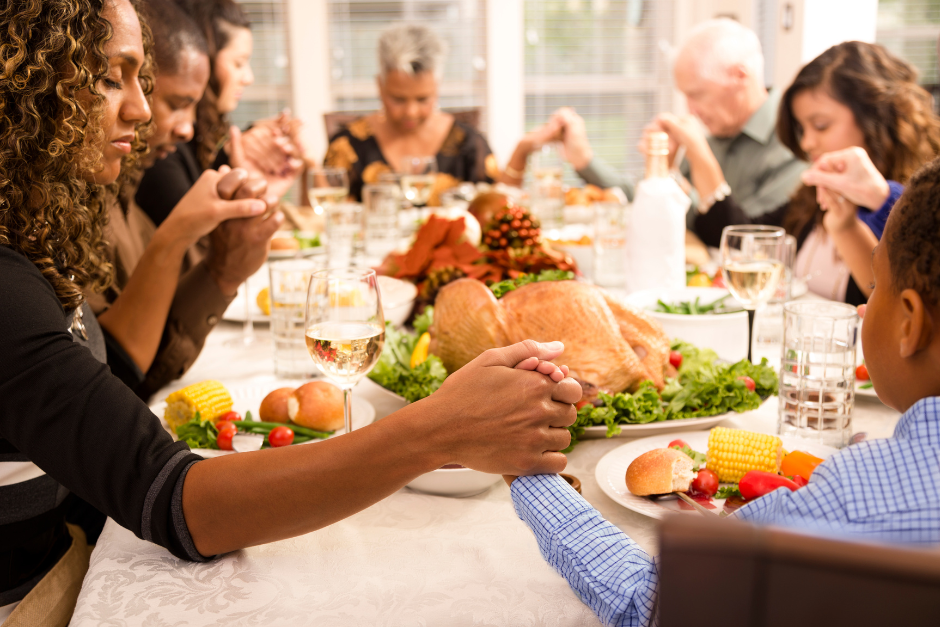In recent years, it seems that it has been increasingly challenging to have civil conversations about hot-button topics, whether those are politics, global conflict, or cultural and social issues. Everyone has strong opinions and discussions at home can become heated when people don’t see eye-to-eye.
It’s important to remember, that strong feelings often are rooted in hurt, fear and anxiety and that every interaction should be approached with compassion, patience and careful listening so that family relationships aren’t damaged. So, as we approach the Thanksgiving holiday, and potential discussions over the dinner table, here are some strategies for navigating differences with loved ones and keeping conversations amicable.
Tips For Healthy Communication Around the Thanksgiving Table
- Don’t try or expect to change another family member’s mind. It will just build resentment and frustration. Accept, from the start, that anyone who wants to engage on the topic, probably has fairly set beliefs.
- Watch your tone. Take a deep breath before you dive in and approach the conversation with kindness and respect. Keep your voice even and measured. Raising your voice during an argument is like pouring gasoline on a fire and only exacerbates the negativity.
- Take the time to listen. It’s important to listen and try to understand where the other person is coming from. If you are busy shaping your response you are not really listening. If you consider the other person’s perspective and respond with empathy, it can go far to diffusing tension and making the other person feel validated.
- Assume best intentions. When discussions get heated and people get angry misunderstandings happen and people say things they don’t mean. Try to remember that your family members are good, caring people who may have valid reasons for their opinion, no matter what they say during political arguments.
- Know when to step away. If a conversation is getting too tense, step back. Continuing will likely just make you angrier. If you can’t keep your voice down and your tone civil, it’s time to stop. Politely, let the other person know that you’ve listened to what they’ve said and ease the focus of the conversation on to another subject.
- Remember that you love each other. Remind yourself that you love the people you disagree with. It’s easy to become derailed in a relationship when anger and resentment build. Just because family members have different beliefs, they are not the enemy.
- Focus on what you have in common. Most families have shared histories, traditions and values. Instead of thinking about the differences, try to focus on things you can agree on.
If you find that every discussion seems to turn hostile during the holidays, you may want to reach out to a mental health professional for tools on how to deal with toxic family relationships and communicate more effectively.



Trackbacks/Pingbacks